Works

Time Enough for Love
Robert A. Heinlein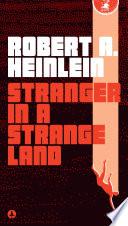
Stranger in a Strange Land
Robert A. HeinleinThe Number of the Beast
Robert A. HeinleinFriday
Robert A. Heinlein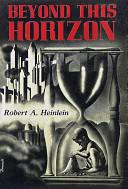
Beyond This Horizon
Robert A. Heinlein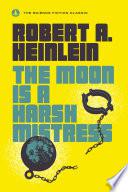
The Moon Is a Harsh Mistress
Robert A. Heinlein
Starship Troopers
Robert A. Heinlein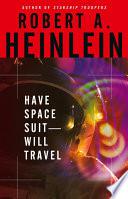
Have Space Suit—Will Travel
Robert A. Heinlein
Between Planets
Robert A. Heinlein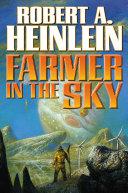
Farmer in the Sky
Robert A. HeinleinThe Cat Who Walks Through Walls
Robert A. Heinlein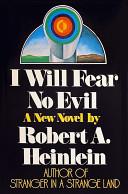
I Will Fear No Evil
Robert A. Heinlein
The Puppet Masters
Robert A. Heinlein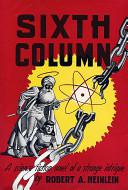
Sixth Column
Robert A. Heinlein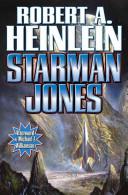
Starman Jones
Robert A. Heinlein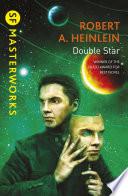
Double Star
Robert A. Heinlein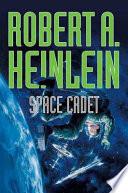
Space Cadet
Robert A. Heinlein
Methuselah's Children
Robert A. Heinlein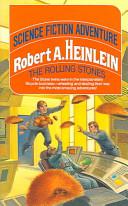
The Rolling Stones
Robert A. Heinlein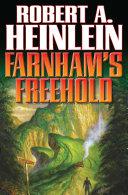
Farnham's Freehold
Robert A. HeinleinRed Planet
Robert A. Heinlein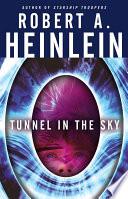
Tunnel in the Sky
Robert A. Heinlein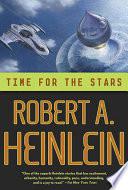
Time for the Stars
Robert A. Heinlein"—All You Zombies—"
Robert A. HeinleinIf This Goes On
Robert A. Heinlein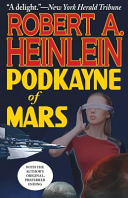
Podkayne of Mars
Robert A. HeinleinLost Legacy
Robert A. Heinlein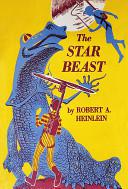
The Star Beast
Robert A. HeinleinGulf
Robert A. HeinleinJob: A Comedy of Justice
Robert A. HeinleinBy His Bootstraps
Robert A. Heinlein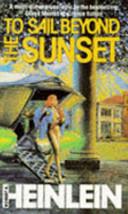
To Sail Beyond the Sunset
Robert A. HeinleinLife-Line
Robert A. Heinlein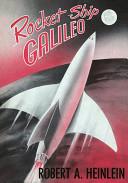
Rocket Ship Galileo
Robert A. Heinlein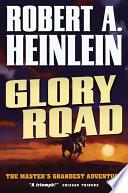
Glory Road
Robert A. HeinleinGrumbles from the Grave
Robert A. Heinlein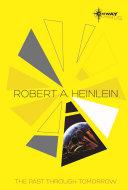
The Past Through Tomorrow
Robert A. HeinleinRevolt in 2100
Robert A. HeinleinThe Year of the Jackpot
Robert A. HeinleinSolution Unsatisfactory
Robert A. Heinlein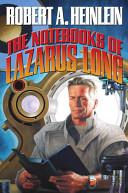
The Notebooks of Lazarus Long
Robert A. HeinleinElsewhen
Robert A. Heinlein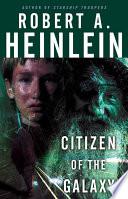
Citizen of the Galaxy
Robert A. HeinleinWaldo
Robert A. HeinleinThey
Robert A. Heinlein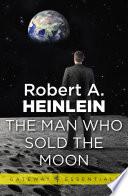
The Man Who Sold the Moon
Robert A. Heinlein
Assignment in Eternity
Robert A. HeinleinLogic of Empire
Robert A. HeinleinTramp Royale
Robert A. Heinlein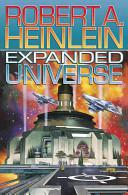
Expanded Universe
Robert A. Heinlein
The Green Hills of Earth
Robert A. HeinleinGoldfish Bowl
Robert A. HeinleinThe Long Watch
Robert A. HeinleinFamous Robert A. Heinlein Quotes
“Never attempt to teach a pig to sing; it wastes your time and annoys the pig.”
Source: Time Enough for Love
“Love is the condition in which the happiness of another person is essential to your own.”
"Jubal Harshaw" in the first edition (1961); the later 1991 "Uncut" edition didn't have this line, because it was one Heinlein had added when he went through and trimmed the originally submitted manuscript on which the "Uncut" edition is based. Heinlein also later used a variant of this in The Cat Who Walks Through Walls where he has Xia quote Harshaw: "Dr. Harshaw says that 'the word "love" designates a subjective condition in which the welfare and happiness of another person are essential to one's own happiness.'"
Source: Stranger in a Strange Land (1961; 1991)
Robert A. Heinlein Quotes about people
Source: The Star Beast (1954), Chapter 3, “—An Improper Question” (p. 53)
Robert A. Heinlein: Trending quotes
“A brute kills for pleasure. A fool kills from hate.”
Time Enough for Love (1973)
Time Enough for Love (1973)
“If a thing's worth doing, it's worth overdoing. (Lazarus Long)”
Variant: Take big bites. Anything worth doing is worth overdoing.
Source: Time Enough for Love
Robert A. Heinlein Quotes
“Life is short, but the years are long.”
Part of the secret "call and response" codewords by which members of the long-lived Howard Families can identify others:
: Life is short.
But the years are long.
Not while the evil days come not.
Methuselah's Children (1958)
“A generation which ignores history has no past —and no future.”
Source: Time Enough for Love (1973)
“Never underestimate the power of human stupidity.”
Source: Time Enough for Love (1973)
Gwen Novak (Hazel Stone); chapter 18, p. 230
The Cat Who Walks Through Walls (1985)
Context: The hardest part about gaining any new idea is sweeping out the false idea occupying that niche. As long as that niche is occupied, evidence and proof and logical demonstration get nowhere. But once the niche is emptied of the wrong idea that has been filling it — once you can honestly say, "I don't know", then it becomes possible to get at the truth.
“Always listen to experts. They'll tell you what can't be done, and why. Then do it.”
Source: Time Enough for Love
“You live and learn. Or you don't live long.”
Source: Time Enough for Love (1973)
“Work is not an end in itself; there must always be time enough for love.”
Source: Time Enough for Love
“Progress is made by lazy men looking for easier ways to do things.”
Time Enough for Love (1973)
Variant: Progress doesn't come from early risers — progress is made by lazy men looking for easier ways to do things.
“Age is not an accomplishment, and youth is not a sin.”
Methuselah's Children (1958)
Source: Have Space Suit—Will Travel (1958), Chapter 2
“When I don’t understand, I have an unbearable itch to know why.”
Source: Have Space Suit—Will Travel (1958), Chapter 7
“There is nothing in this world so permanent as a temporary emergency.”
The Man Who Sold the Moon (p. 100)
Short fiction, The Past Through Tomorrow (1967)
“All men are created unequal.”
Time Enough for Love (1973)
“How can I possibly put a new idea into your heads, if I do not first remove your delusions?”
Life-Line (p. 15)
Short fiction, The Past Through Tomorrow (1967)
Source: Time for the Stars (1956), Chapter 4, “Half a Loaf” (p. 44)
The Moon Is a Harsh Mistress (1966)
“You have attributed conditions to villainy that simply result from stupidity.”
Logic of Empire (p. 335); this is one of the earliest known variants of an idea which has become known as Hanlon's razor.
Short fiction, The Past Through Tomorrow (1967)
Source: The Green Hills of Earth
“Never try to outstubborn a cat.”
Source: Time Enough for Love
The Moon Is a Harsh Mistress (1966)
Source: The Moon is a Harsh Mistress
This I Believe (1952)
Context: I believe in — I am proud to belong to — the United States. Despite shortcomings, from lynchings to bad faith in high places, our nation has had the most decent and kindly internal practices and foreign policies to be found anywhere in history.
And finally, I believe in my whole race. Yellow, white, black, red, brown — in the honesty, courage, intelligence, durability … and goodness …. of the overwhelming majority of my brothers and sisters everywhere on this planet. I am proud to be a human being. I believe that we have come this far by the skin of our teeth, that we always make it just by the skin of our teeth — but that we will always make it … survive … endure. I believe that this hairless embryo with the aching, oversize brain case and the opposable thumb, this animal barely up from the apes, will endure — will endure longer than his home planet, will spread out to the other planets, to the stars, and beyond, carrying with him his honesty, his insatiable curiosity, his unlimited courage — and his noble essential decency.
This I believe with all my heart.
The Robert Heinlein Interview (1973)
Context: I would say that my position is not too far from that of Ayn Rand's; that I would like to see government reduced to no more than internal police and courts, external armed forces — with the other matters handled otherwise. I'm sick of the way the government sticks its nose into everything, now.
“Men are expendable; women and children are not.”
The Pragmatics of Patriotism (1973)
Context: Men are expendable; women and children are not. A tribe or a nation can lose a high percentage of its men and still pick up the pieces and go on... as long as the women and children are saved. But if you fail to save the women and children, you've had it, you're done, you're through! You join Tyrannosaurus Rex, one more breed that bilged its final test.
The Pragmatics of Patriotism (1973)
Context: In this complex world, science, the scientific method, and the consequences of the scientific method are central to everything the human race is doing and to wherever we are going. If we blow ourselves up we will do it by misapplication of science; if we manage to keep from blowing ourselves up, it will be through intelligent application of science.
“Time is never a problem on the God level. Or space.”
Job: A Comedy of Justice (1984)
Context: Time is never a problem on the God level. Or space. Whatever needed to deceive you was provided. But no more than that. That is the conservative principle in art at the God level. While I can't do it, not being at that level, I have seen a lot of it done. A skillful Artist in shapes and appearances does no more than necessary to create His effect.
“I believe that almost all politicians are honest.”
This I Believe (1952)
Context: I believe that almost all politicians are honest. For every bribed alderman there are hundreds of politicians, low paid or not paid at all, doing their level best without thanks or glory to make our system work. If this were not true, we would never have gotten past the thirteen colonies.
“I believe in — I am proud to belong to — the United States.”
This I Believe (1952)
Context: I believe in — I am proud to belong to — the United States. Despite shortcomings, from lynchings to bad faith in high places, our nation has had the most decent and kindly internal practices and foreign policies to be found anywhere in history.
And finally, I believe in my whole race. Yellow, white, black, red, brown — in the honesty, courage, intelligence, durability … and goodness …. of the overwhelming majority of my brothers and sisters everywhere on this planet. I am proud to be a human being. I believe that we have come this far by the skin of our teeth, that we always make it just by the skin of our teeth — but that we will always make it … survive … endure. I believe that this hairless embryo with the aching, oversize brain case and the opposable thumb, this animal barely up from the apes, will endure — will endure longer than his home planet, will spread out to the other planets, to the stars, and beyond, carrying with him his honesty, his insatiable curiosity, his unlimited courage — and his noble essential decency.
This I believe with all my heart.
The Pragmatics of Patriotism (1973)
Context: I said that "Patriotism" is a way of saying "Women and children first." And that no one can force a man to feel this way. Instead he must embrace it freely. I want to tell about one such man. He wore no uniform and no one knows his name, or where he came from; all we know is what he did.
In my home town sixty years ago when I was a child, my mother and father used to take me and my brothers and sisters out to Swope Park on Sunday afternoons. It was a wonderful place for kids, with picnic grounds and lakes and a zoo. But a railroad line cut straight through it.
One Sunday afternoon a young married couple were crossing these tracks. She apparently did not watch her step, for she managed to catch her foot in the frog of a switch to a siding and could not pull it free. Her husband stopped to help her.
But try as they might they could not get her foot loose. While they were working at it, a tramp showed up, walking the ties. He joined the husband in trying to pull the young woman's foot loose. No luck —
Out of sight around the curve a train whistled. Perhaps there would have been time to run and flag it down, perhaps not. In any case both men went right ahead trying to pull her free... and the train hit them.
The wife was killed, the husband was mortally injured and died later, the tramp was killed — and testimony showed that neither man made the slightest effort to save himself.
The husband's behavior was heroic... but what we expect of a husband toward his wife: his right, and his proud privilege, to die for his woman. But what of this nameless stranger? Up to the very last second he could have jumped clear. He did not. He was still trying to save this woman he had never seen before in his life, right up to the very instant the train killed him. And that's all we'll ever know about him.
This is how a man dies.
This is how a man... lives!
“Wisdom is not additive; its maximum is that of the wisest man in a given group.”
Glory Road (1963)
Context: Democracy can't work. Mathematicians, peasants, and animals, that's all there is — so democracy, a theory based on the assumption that mathematicians and peasants are equal, can never work. Wisdom is not additive; its maximum is that of the wisest man in a given group.
Revolt in 2100 (1953)
Context: Take sex away from people. Make it forbidden, evil. Limit it to ritualistic breeding. Force it to back up into suppressed sadism. Then hand the people a scapegoat to hate. Let them kill a scapegoat occasionally for cathartic release. The mechanism is ages old. Tyrants used it centuries before the word "psychology" was ever invented. It works, too.
This I Believe (1952)
Context: I am not going to talk about religious beliefs, but about matters so obvious that it has gone out of style to mention them.
I believe in my neighbors.
I know their faults and I know that their virtues far outweigh their faults. Take Father Michael down our road a piece — I'm not of his creed, but I know the goodness and charity and lovingkindness that shine in his daily actions. I believe in Father Mike; if I'm in trouble, I'll go to him. My next-door neighbor is a veterinary doctor. Doc will get out of bed after a hard day to help a stray cat. No fee — no prospect of a fee. I believe in Doc.
The Moon Is a Harsh Mistress (1966)
Context: A rational anarchist believes that concepts, such as "state" and "society" and "government" have no existence save as physically exemplified in the acts of self-responsible individuals. He believes that it is impossible to shift blame, share blame, distribute blame... as blame, guilt, responsibility are matters taking place inside human beings singly and nowhere else. But being rational, he knows that not all individuals hold his evaluations, so he tries to live perfectly in an imperfect world... aware that his efforts will be less than perfect yet undismayed by self-knowledge of self-failure.
Letter to Alice Dalgliesh, the editor who was censoring his manuscript for Red Planet, regarding gun control registration and control
Grumbles from the Grave (1989)
Context: Criminals are never materially handicapped by such rules; the only effect is to disarm the peaceful citizen and put him fully at the mercy of the lawless. Such rules look very pretty on paper; in practice they are as foolish and footless as the attempt of the mice to bell the cat. Such is my thesis, that the licensing of weapons is subversive of liberty and self-defeating in its pious purpose.
“There is solemn satisfaction in doing the best you can for eight billion people.”
Double Star (1956)
Context: There is solemn satisfaction in doing the best you can for eight billion people. Perhaps their lives have no cosmic significance, but they have feelings. They can hurt.
The Robert Heinlein Interview, and other Heinleiniana (1973) by J. Neil Schulman (published in 1990)
Context: At the time I wrote Methuselah’s Children I was still politically quite naive and still had hopes that various libertarian notions could be put over by political processes… It [now] seems to me that every time we manage to establish one freedom, they take another one away. Maybe two. And that seems to me characteristic of a society as it gets older, and more crowded, and higher taxes, and more laws. I would say that my position is not too far from that of Ayn Rand's; that I would like to see government reduced to no more than internal police and courts, external armed forces — with the other matters handled otherwise. I'm sick of the way government sticks its nose in everything, now.
1975 Statement to Judith Merrill, who had called herself a democrat and a libertarian, stating that such terms described him as well, as quoted in Robert A. Heinlein : In Dialogue with His Century, Volume 2: The Man Who Learned Better | 1948-1988 (2014), p. 389
Context: I think that describes me, too — still a democrat not because I love the Common Peepul and not because I think democracy is so successful (look around you) but, because in a lifetime of thinking about it and learning all that I could, I haven't found any other political organization that worked as well.
As for libertarian, I've been one all my life, a radical one. You might use the term "philosophical anarchist" or "autarchist" about me, but "libertarian" is easier to define and fits well enough.
“Life-Line”, p. 24
The Past Through Tomorrow (1967)
Context: There are but two ways of forming an opinion in science. One is the scientific method; the other, the scholastic. One can judge from experiment, or one can blindly accept authority. To the scientific mind, experimental proof is all important and theory is merely a convenience in description, to be junked when it no longer fits. To the academic mind, authority is everything and facts are junked when they do not fit theory laid down by authority.
On censorship, in The Man Who Sold the Moon (1950), p. 188; this may be the origin of a remark which in recent years has sometimes become misattributed to Mark Twain: Censorship is telling a man he can't have a steak just because a baby can't chew it.
Context: How anybody expects a man to stay in business with every two-bit wowser in the country claiming a veto over what we can say and can't say and what we can show and what we can't show — it's enough to make you throw up. The whole principle is wrong; it's like demanding that grown men live on skim milk because the baby can't eat steak.
“One small step for a man, one giant leap for mankind.”
The Pragmatics of Patriotism (1973)
Context: Many short-sighted fools think that going to the Moon was just a stunt. But the astronauts knew the meaning of what they were doing, as is shown by Neil Armstrong's first words in stepping down onto the soil of Luna: "One small step for a man, one giant leap for mankind."
